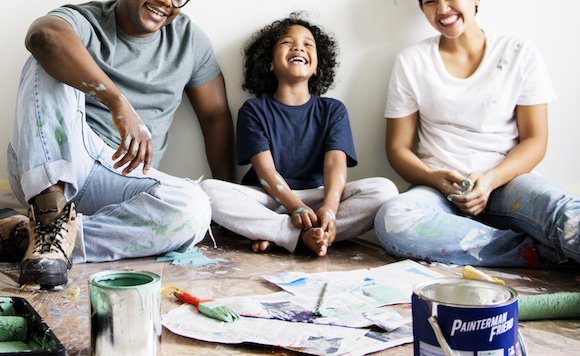It's easy to feel frightened and overwhelmed in today's world. But it IS possible, even in scary times, to be guided by the values that matter most to us, including the commitment to provide a calm, loving home for our children. To do that, we need a sense of optimism -- the conviction that things will work out, and that what we do can have a positive impact.
8 Vital Reasons to Teach Your Child About Feelings (Nature & Thrive)
How to help kids cope with pandemic's psychological toll (USA Today)
As the pandemic stretches out long and wide, kids across the board are feeling the same stressors as adults - yet many don’t have the life experience to feel confident they can get through it or the proper instruction for proven coping techniques (like mindfulness!). The endless ‘doom cycle’ on the news only exacerbates this situation, while kids wait for school life and extracurriculars to kick back in (providing needed relief from being at home with harried, worried family members). Adults can help, by staying aware and being proactive with interventions, open communication and consistently modelling healthy behaviours and strategies.
8-Year-Olds in Despair: The Mental Health Crisis Is Getting Younger (The New York Times)
The number of children who need urgent mental health care has been on the rise for years, and spiked during the pandemic. Between April and October of 2020, there was a 24 percent increase in the proportion of mental health emergency department visits for kids ages 5 to 11 compared with the same period in 2019.
12 Calming Exercises for Little Ones (Connecticut Children’s Pediatric)
Breathing to Reduce Stress - Calling all Parents, Teachers & Kids
The easiest and quickest way to calm an anxious mind is to breathe in and breathe out. But if you find “breath work” boring, you’re not alone! Here’s a shortlist of techniques we love, so you can find the one that’s easy and right for you. Scan this list and try a few. Then, teach your kids and students! As always, most kids pick up on these techniques effortlessly (when compared with adults). If you teach children while they’re young, you give them crucial EQ skills to draw on for life.
Spotlight on Hornville - a new card game that teaches kids how to think critically!
At Kidevolve, we’re all about sharing tools, teachings and new approaches that help kids foster more robust EQ and strengthen self-awareness skills. Especially when kids today are coping with home-schooling, extra family stressors and navigating our ever-evolving pandemic realities.
Enter Hornville - a unique and simple card game where kids, starting at age seven, learn to improve critical thinking skills while having loads of fun!
Living in a time where fact and opinion are interchangeable, critical thinking is incredibly important. Unfortunately, this isn’t something that comes naturally to everyone. It takes practice and exposure, which can start at a young age.
Founder Darlyn Reyes notes: “As a family who loves game night with the kids and board game marathons with friends it became obvious, we needed to make critical and creative thinking fun.”
And so, at the start of Covid19, Hornville was born. Hornville is a simple card game about bringing fun to better decision-making through serious debates about horns, glitter, and teacup dragons. A learning tool disguised as a game by using silly topics and sassy illustrations that will make kids giggle (7+) and keep adults engaged.
Visit www.WelcometoHornville.com to learn more and sign up for updates.
Follow on: Facebook/ Instagram/ TikTok
Subscribe: YouTube
At Kidevolve, we’re all about giving kids a variety of tools for greater self-awareness, resiliency and self-control - delve into our Imaginarium on Youtube or listen to our Creative Mind Journeys™ as audio experiences on Apple podcasts or at Kidevolve.com. Our uniquely sticky stories are designed for kids aged 6 through 10 - to help them find a new routes into learning mindfulness techniques. We mix music, sound fx, incredible voice talent and pure whimsy to deliver highly imaginative tales that double as smart guided practices!
Why a kid’s relationship with teachers is more important than ever (Nat Geo)
When the pandemic forced most kids into remote learning last spring, children lost vital physical connections with their teachers. Gone were the morning high-fives, hallway conversations, and over-the-shoulder homework corrections they were used to. Positive teacher-student bonds are the “secret sauce of education”, yet many kids in Virtual School feel isolated, bored and disconnected - especially given large class sizes and technology limitations. The good news is that you can improve your child’s relationship with their teacher, even during a pandemic.
Kids can get lonely. Here’s why that’s more concerning during the pandemic (Nat Geo)
Building an attitude of gratitude in children (NatGeo)
Expressing gratitude releases oxytocin in the brain, which promotes a feeling of empathy, calmness, trust, and a sense of safety,” says author and parent coach Elaine Uskoski. Plus, “having the ability to look for a positive perspective during trying times gives a child an opportunity to control their emotional response. A child will then be less likely to experience fear, anxiety, and a sense of powerlessness.










